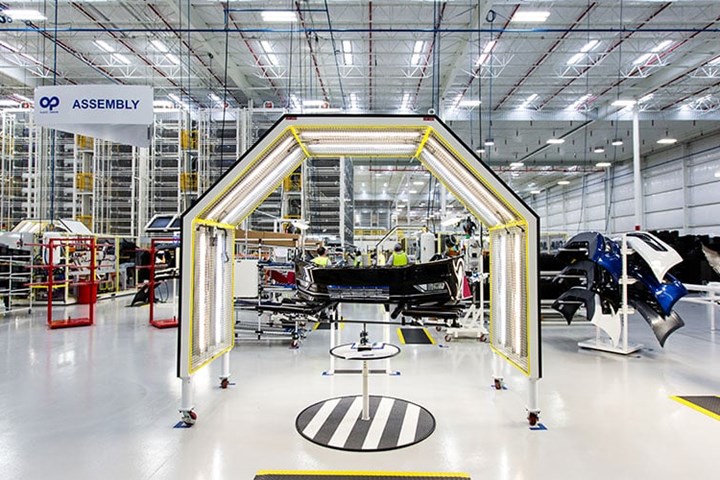Plastic Omnium plans $171 million hydrogen investment in Michigan
French automaker subsidiary is looking at two U.S. sites for storage vessel production and validation that will support 40,000 vehicles/year by 2027.

Photo Credit: Compagnie Plastic Omnium
As originally reported by Crain’s Detroit Business, a subsidiary of French automotive supplier Compagnie Plastic Omnium (Levallois-Perret) is planning to invest up to $171 million at a pair of sites in Michigan to support a large award from an automaker. Operations are expected to support 40,000 vehicles annually by 2027.
One 20,000-square-foot site on 4357 Baldwin Rd will be used to produce hydrogen storage vessels for the undisclosed vehicle — while not confirmed by the company, it can be assumed that the subsidiary will be using its expertise in producing filament-wound, high-pressure Type IV hydrogen vessels. Leasing of a second, 50,000-square-foot facility is anticipated in order to validate these hydrogen systems for road use, with location still undetermined.
The project is being supported by a $5 million performance-based grant from the Michigan Economic Development Corp. (MEDC) and a 15-year 100% SESA Exemption valued at $2.4 million. According to an MEDC briefing memo, “This project aligns with the MEDC’s strategic focus area of supporting a business in the target industry of mobility and automotive manufacturing.”
In addition to the U.S., Plastic Omnium has grown its operations exponentially over the last couple of years. A Type IV pressure vessel line to be established in China will provide a 60,000-vessel capacity by 2026; and construction of another facility in France, announced in August 2022, will reportedly produce 80,000 Type IV storage vessels/year. Compagnie Plastic Omnium has 150 manufacturing plants and 43 R&D centers worldwide.
Related Content
-
Hexagon Purus Westminster: Experience, growth, new developments in hydrogen storage
Hexagon Purus scales production of Type 4 composite tanks, discusses growth, recyclability, sensors and carbon fiber supply and sustainability.
-
Composites end markets: Automotive (2024)
Recent trends in automotive composites include new materials and developments for battery electric vehicles, hydrogen fuel cell technologies, and recycled and bio-based materials.
-
Honda begins production of 2025 CR-V e:FCEV with Type 4 hydrogen tanks in U.S.
Model includes new technologies produced at Performance Manufacturing Center (PMC) in Marysville, Ohio, which is part of Honda hydrogen business strategy that includes Class 8 trucks.









.jpg;maxWidth=300;quality=90)


